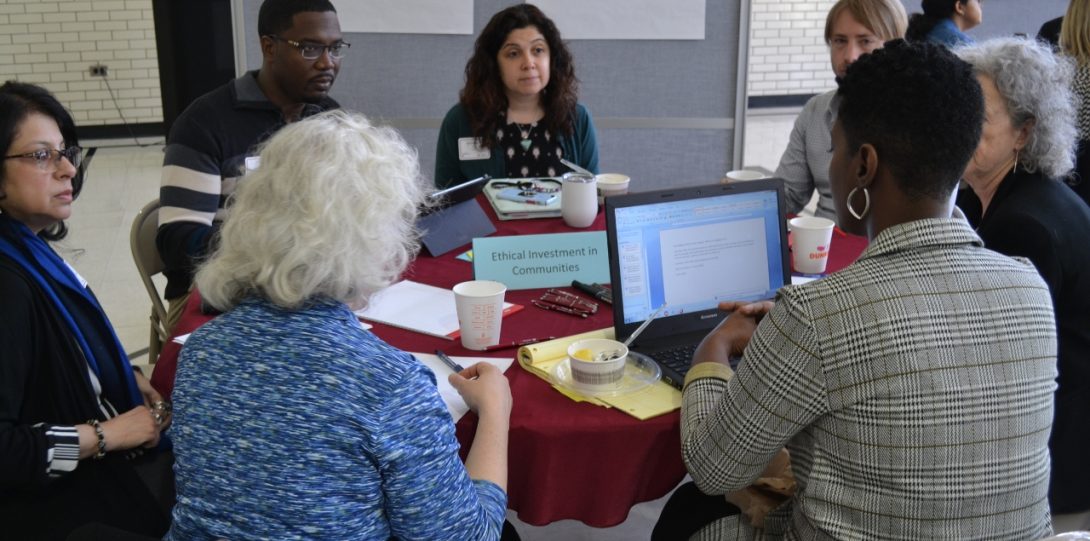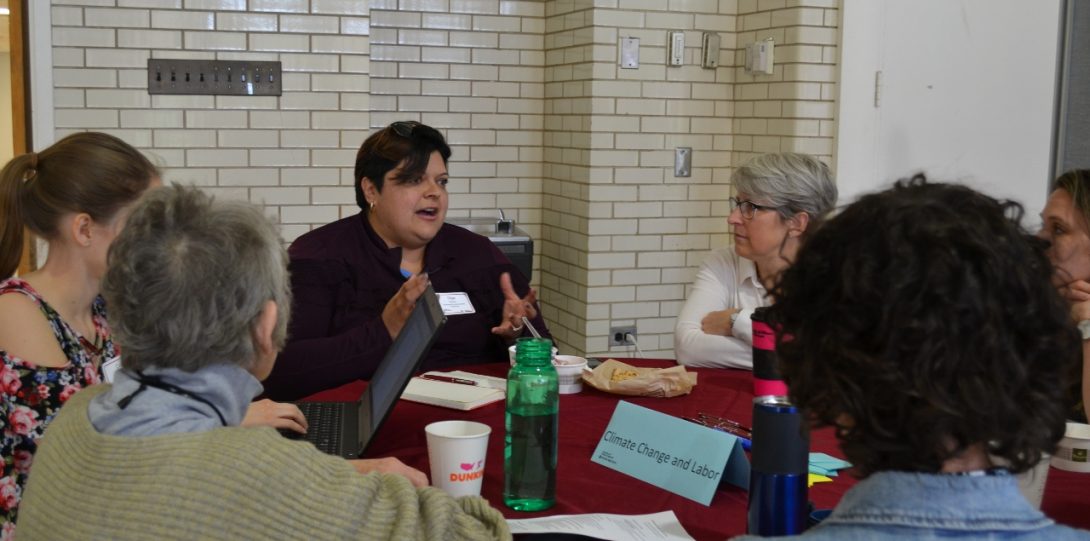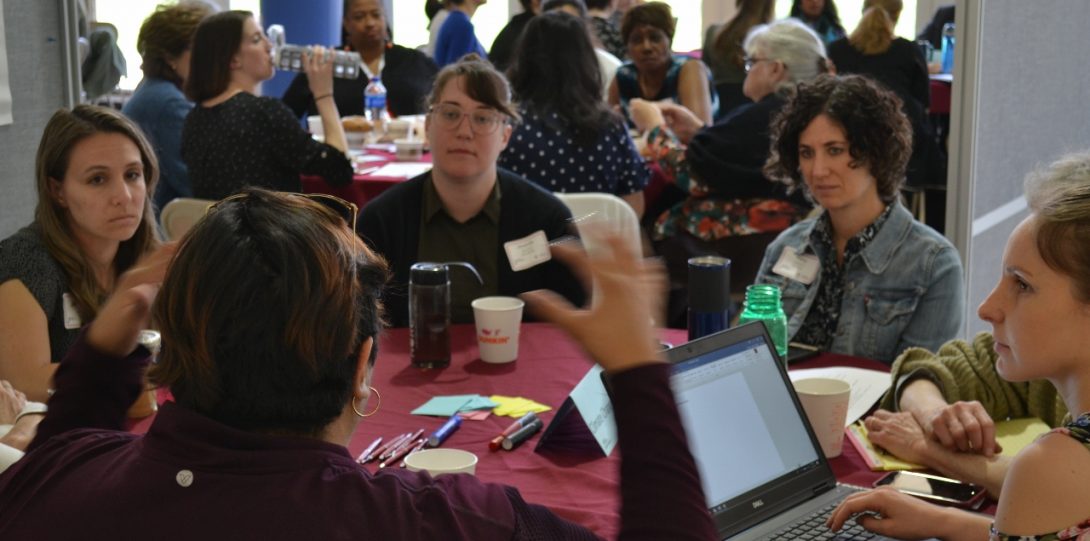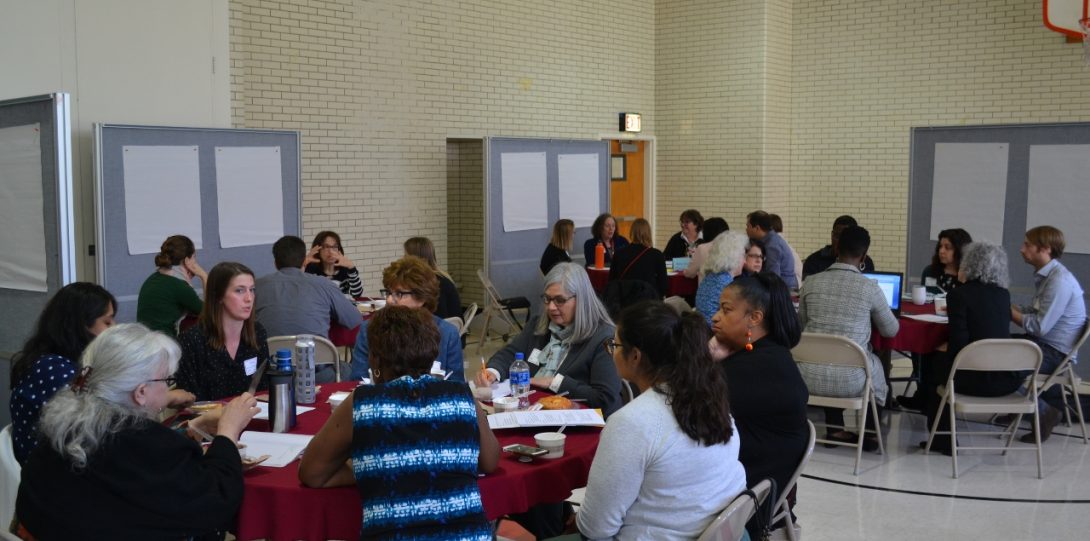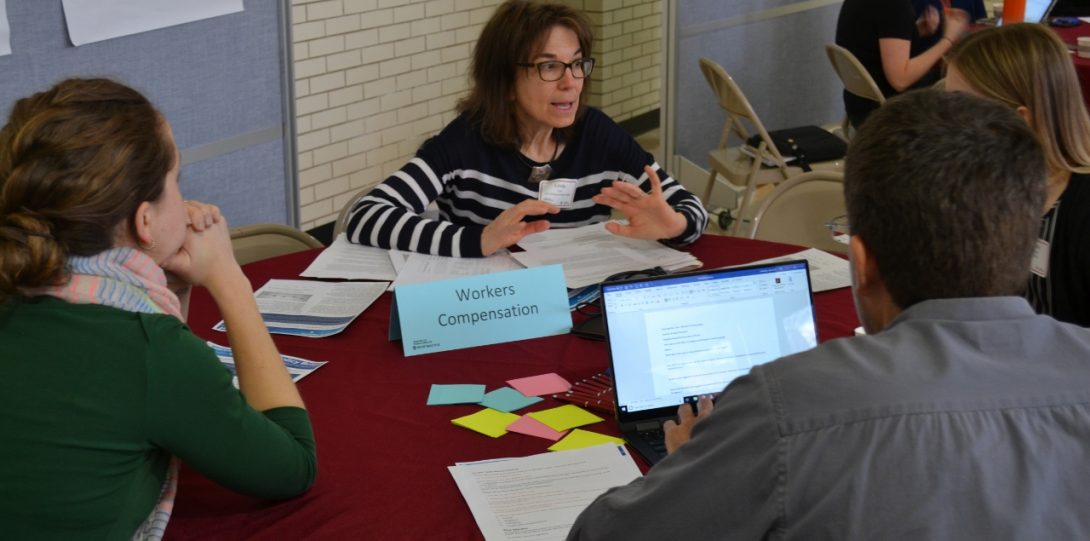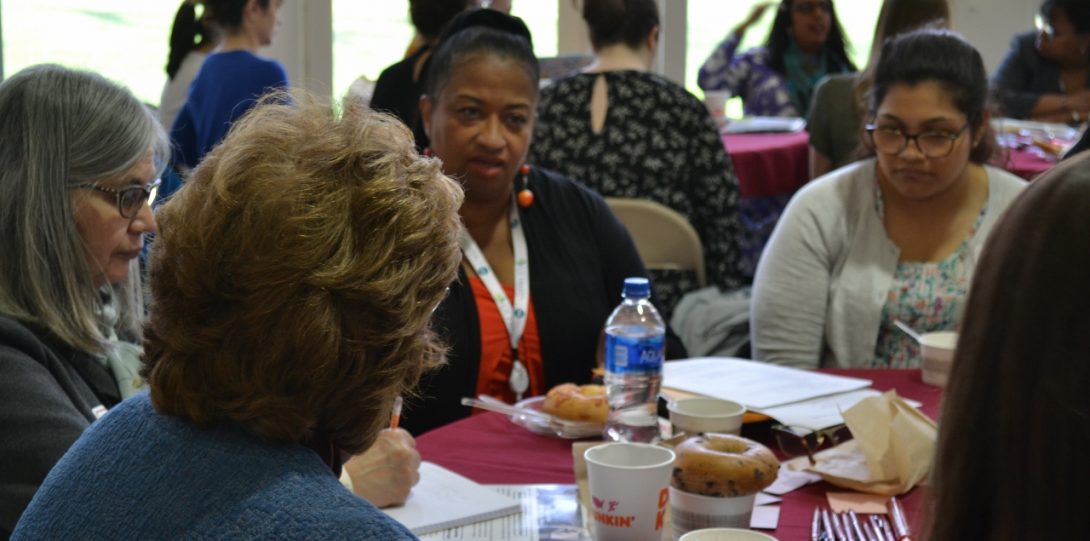On the Table 2019: The Future of Work and Health
On the Table Intro
The Chicago Community Trust’s On the Table event provides an opportunity for UIC, our partners, and community members to come together to discuss the issues that impact our health. This year, the UIC School of Public Health focused on The Future of Work and Health. Conversations were summarized in Memos to the Mayor – a tangible way to let Chicago’s new mayor know how to understand how work impacts the health of our communities.
Read about key discussion points and view the memos from each table below!
On the Table Memos
Environmental Justice and Climate Change
Participants at this table discussed priorities for the City of Chicago to protect the health or our communities and the environment by addressing environmental injustices and promoting safer workplaces and environmental sustainability.
- The industrial corridor modernization initiative should prioritize sustainable development that creates jobs and business opportunities, while also improving the environmental health and safety of the workers and communities in and around industrial corridors.
- Residents need an avenue for their voices to be heard during the planning process for all new developments in industrial corridors, especially in communities who have long suffered from environmental injustices.
- The City of Chicago should form a task force made up of workers and residents to better understand the impacts of climate change on labor and how industrial corridors will be impacted to best plan for a future where there is economic and environmental justice.
Ethical Investment in Communities
The Lightfoot Administration should prioritize investing in historically underserved neighborhoods, especially communities of color, marginalized ethnic and racial minority groups, immigrants and refugees, limited English proficient/non-English speakers, and people with disabilities by doing the following:
- Engage multi-sectoral partnerships in efforts that leverage their respective assets, strengths, and interests to craft comprehensive collaborations that address intersecting barriers and opportunities to economic development (including factors, such as the affordability, accessibility, inclusivity, and quality of housing, transportation, and education).
- Increase opportunities for local economic development by offering local businesses resources through publicly funded resources.
- Encourage private businesses to recognize their potential to create shared value with the communities they serve.
School to Work Pipelines
The high school graduation rate in Chicago has shown steady increases since 2011, going from 56.9% in that year to a high of 78.2% in 2018. In March 2019, the unemployment rate in Chicago hit a low of 3.7%.
These overall numbers however disguise disturbingly persistent inequities especially for African American males and disabled persons. The strategy this table chose to focus on was school-to-work pipelines, including college pipeline programs, and vocational training in technology, health and the trades, and paid summer internships and apprenticeships.
Our table had the following specific suggestions for the new mayor:
- Create a clearing house for information on pipeline programs.
- Promote, replicate, and fund programs shown to be effective; develop information systems that help link users with appropriate programs; establish linkages with businesses, community organizations, etc.
- Establish career exploration activities/curricula in all schools, with focus on informing both youth and families. Make career resources available to persons with disabilities, those out of school, and those in alternative/transitional settings.
- Create a task force to assure that the above ideas are effectively executed.
Families and Children
Participants at this table discussed the policies that impact working families in the City of Chicago. Recommendations shared by participants include:
- Chicago as a model employer: The city of Chicago is in a unique position to demonstrate and set the course for work-related polices that effectively support families and children. As a prominent employer as well as a governing body, Chicago can model practices that more fully support workers and the families who interact with its systems of public services.
- These are additional actions that Mayor Lightfoot should prioritize to promote the health of working families:
- Development and implementation of an expansive and enforceable lactation policy for the city of Chicago.
- Staffing and funding of the Chicago Office of Labor Standards.
- Appointing of a Deputy Mayor of Families and Children.
Work Arrangements
This table’s aims were to highlight the challenges faced by workers in non-standard work arrangements (NSWAs) and to offer recommendations for developing a healthy workforce in Chicago.
Following the success of Healthy Chicago 2.0, we propose developing a strategic plan to measure success around healthy work. Below, we highlight a few areas that could receive attention as part of this plan.
- Data Collection and Awareness: We need better data on NSWAs.
- Initiatives for Employees: Employees need better resources for understanding and accessing the services available to them and their rights as workers.
- Business Accountability: Addressing issues of healthy work requires the buy-in of employers, or mandates from the mayor-elect’s office.
- Policy Changes around Public Benefits
- A Culture of Healthy Work in Chicago: Ultimately, we want to raise the bar for the city and all employers in the city to invest in healthy work.
Community Health Workers
Community Health Workers (CHWs) have been operating in Chicago for many years. They are currently used in a variety of settings with a primary focus in Community Based Organizations, Federally Qualified Health Centers, Universities and hospitals. The University of Illinois, Malcolm X College, South Suburban College and Sinai Urban Health Institute have partnered with the Illinois Department of Health to develop a training and certification process for CHWs in Illinois. This process also includes developing a reimbursement process for CHWs. The Chicago Department of Health in their Healthy Chicago 2.0 plan has also identified CHW as an opportunity to improve the health of Chicago citizens.
Community Health Workers are typically persons from the community they serve, and the training and hiring of these individuals can also address unemployment in many of Chicago’s more economically challenged neighborhoods.
- They City of Chicago should partner with the Illinois Department of Health (IDPH) in ensuring the development of a state recognized training and certification program for CHWs.
- The City of Chicago should partner with IDPH in developing a reimbursement model for CW with managed care organizations.
Workers' Compensation
Workers’ Compensation provides health care, wage replacement, and job retraining to injured city employees. Mayor Lightfoot should:
- Move the workers’ compensation program to the Executive branch and increase transparency in government.
- Establish a board to oversee the functioning of the workers’ compensation program.
- Use workers’ compensation data to prevent workplace injury.
Logos
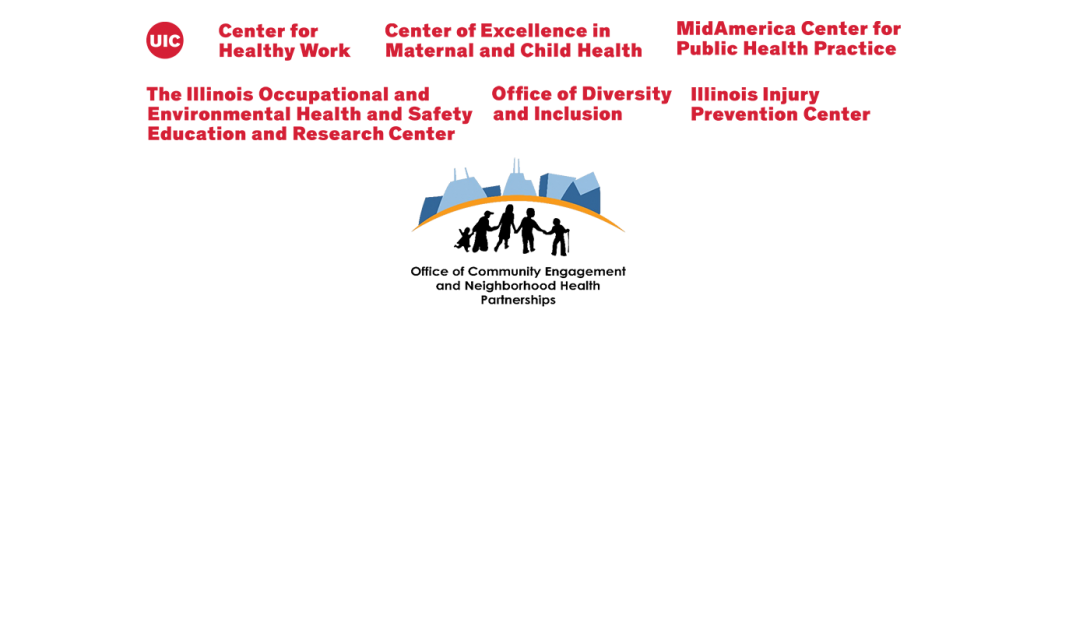
.
